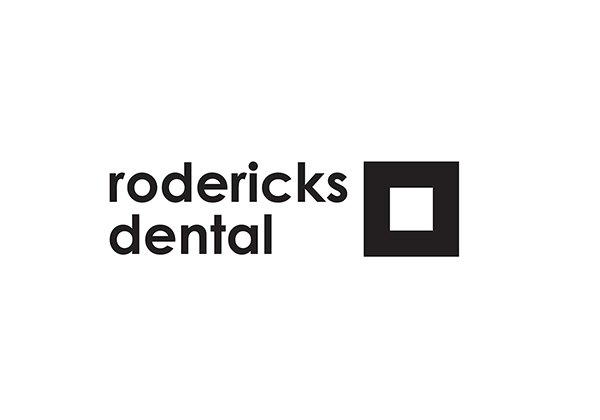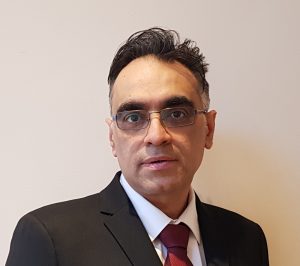The importance of finding a good clinical mentor – Manoj Bhatia Rodericks Dental
Featured Products Promotional FeaturesPosted by: Dental Design 20th January 2020

All dental professionals will benefit from the guidance and support of a more experienced clinician at some point during their careers. In today’s fast-paced profession, there will come a time when every dentist needs to learn a new skill or become proficient with a new piece of equipment. In order to master the new technique or technology, individuals will likely need comprehensive information and dedicated training.
The complexity of the skill being learnt and the experience level of the clinician will determine how much support is required from a more practised professional. In some situations, a clinical mentor might be heavily relied upon to ensure accurate treatment planning and delivery during the initial few cases. In others, mentoring may only be necessary every now and again as a dentist advances their skills further or takes on progressively more complicated cases.
Guidance at every stage
 Manoj Bhatia, a dentist at Rodericks Dental’s Rugby Dental Practice, explores why mentoring is so important for dentists at different stages of their careers.
Manoj Bhatia, a dentist at Rodericks Dental’s Rugby Dental Practice, explores why mentoring is so important for dentists at different stages of their careers.
“For newly qualified dentists, transitioning from a protected environment where skills are constantly examined in school to practice can be difficult,” he says. “You are suddenly expected to fend for yourself, which can be scary. With limited practical experience, you benefit greatly from someone helping you along the way. This might not involve mentoring every day. It might just be about finding someone to call with queries when you reach a certain stage of treatment. Either way, a good clinical mentor is invaluable.
“For more experienced dentists, a clinical mentor can help them develop advanced skills in areas of dentistry that they don’t have experience in. It is particularly useful when moving into dental implants, because this requires a completely new skill set. Dentists are typically comfortable with the prosthodontic and gum management aspects of implantology. However, oral surgery and implant planning are brand new entities that can be challenging. Finding a clinical mentor to help you through your first few cases can help fill any gaps in knowledge or confidence.”
A two-stage mentoring relationship
It is just as important to consider how mentoring should be provided in order to gain the most benefits. Manoj mentors many dentists through their MSc implant journey at UCLan and therefore understands how to support even experienced colleagues in their quest to develop their knowledge and skills.
“I offer clinical mentorship in two stages,” Manoj explains. “First, I will help the dentist during the planning phase of treatment. Once they have completed the relevant assessment, taken CBCT scans and created the study models, we will discuss the planning of implant position, angle and size. Second comes the surgical mentoring. I will join the dentist for implant placement, providing support or advice during the procedure. I’m there if they come across any complications or have any questions. As such, I can support the mentee from the very beginning of treatment right through to completion.”
How to find a clinical mentor
There are several ways for professionals to go about finding the right clinical mentor for them. Manoj offers some ideas on where dentists should start when they wish to find a suitable clinical mentor for them.
“Most university-based courses will offer a mentoring programme during and after their training. It is also possible to find a clinical mentor through professional societies like the Association of Dental Implantology (ADI). In addition, several implant product companies work with highly experienced implantologists who can help to guide new users of the systems through their initial cases.”
Tailored mentorship
Regardless of where a practitioner has reached in their career, a clinical mentor can be hugely beneficial in helping them to develop new skills in a safe and effective way. Who they work with and how will need to be tailored according to their specific situation.
“Every mentee is different with varying skills and confidence levels,” concludes Manoj. “The clinical mentor should be there as much or as little as the mentee needs. A mentee may also dip in and out for guidance as they grow more confident and then progress onto more complicated cases. Most importantly, a dentist should find a clinical mentor – or group of clinical mentors – who is accessible. They need to be contactable when you need help or the relationship will not be of benefit!”
Working with a group like Rodericks Dental makes finding a great clinical mentor easy. There is a ready-made network of highly experienced clinicians who are only too happy to support colleagues in their professional development and provide mentorship wherever it is needed. Discover the many career progression opportunities available by contacting our friendly team today.
For more information on the career opportunities available at Rodericks, please visit www.rodericksdentalcareers.co.uk,
or contact Ashley Lillyman at recruitment@rodericksdental.co.ukor on
01604 970988(option 1)
#wearerodericks
No Comments
No comments yet.
Sorry, the comment form is closed at this time.



